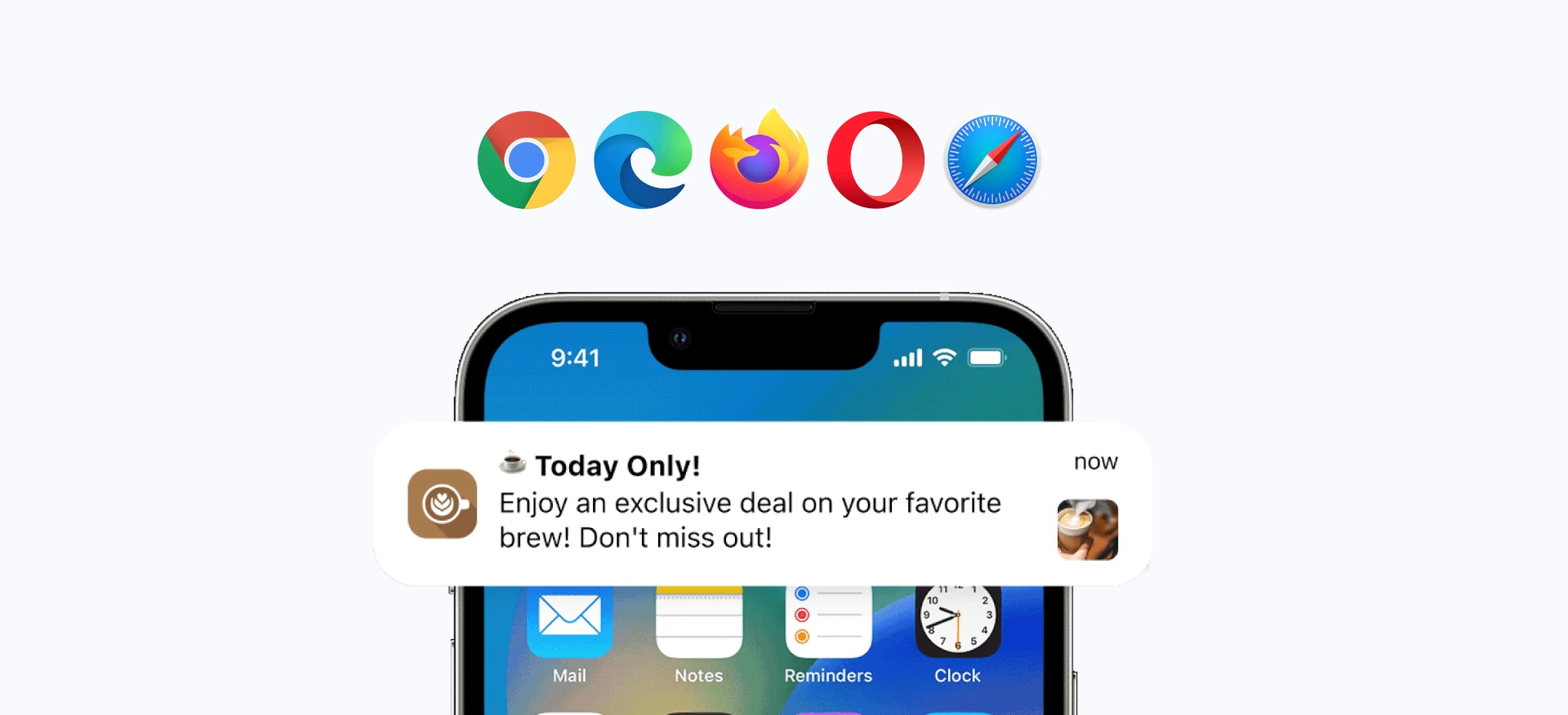One of the first questions people ask when exploring web push notifications is: Will this work for all my visitors?
The good news is — web push technology is now supported on almost every major browser and device, making it one of the most effective ways to reach users across desktop and mobile platforms.
In this article, we’ll break down which operating systems and browsers support web push notifications, highlight a few important limitations, and share how Pushr.me makes it easy to stay compatible.
Web Push Is Supported Almost Everywhere
Modern web push notifications work across all major operating systems:
- Windows
- macOS
- Linux
- ChromeOS
- Android
- iOS & iPadOS (with some limitations)
And most leading browsers:
- Chrome
- Safari
- Firefox
- Edge
- Opera
- Samsung Internet
Whether your users are on a laptop in a home office, a phone on the go, or a tablet on the couch, push notifications can reach them — instantly and directly.
Browser and Device Compatibility Chart: This table outlines where web push notifications are supported across major operating systems and browsers. For best results, encourage users to subscribe using supported browsers in standard (non-incognito) mode. iOS support requires Safari and home screen installation.
Visual Overview of Browser & Platform Support
To make things easy, here’s a snapshot of where web push notifications are supported. ✅ means full support; ❌ means unsupported or limited.
📊 Platforms & Browsers Support Chart Insert the compatibility chart image you uploaded here.
This chart shows just how widespread push support is across devices. But there are a few things to keep in mind — especially on mobile.
iOS: A Special Case
Apple added support for web push notifications on iOS and iPadOS through Safari — but there are some extra steps:
- Users must add your website to their home screen
- Notifications must be triggered through Safari (no support in Chrome or Firefox on iOS)
- Permissions are managed inside the app icon users save
Despite the extra step, this still opens the door to millions of Apple users receiving your updates.
Known Limitations You Should Know
While web push is powerful, there are a few important limitations across all platforms:
🚫 No Support in Incognito Mode
Private/Incognito browser windows do not support push notifications for privacy and security reasons.
🚫 No Support in WebViews or In-App Browsers
Users cannot subscribe via browsers inside other apps — like:
- TikTok
- Gmail app browser
To ensure the best chance of engagement, encourage users to open your site in their default browser.
Why Platform Support Matters
Understanding browser and device compatibility isn’t just technical — it’s strategic. It helps you:
- Set realistic expectations about your subscriber base
- Avoid confusion when users don’t see prompts (e.g., in unsupported environments)
- Plan effective onboarding and instructions — especially for iOS users
- Optimize campaign reach by knowing where your audience lives
Pushr.me handles all the detection and delivery logic behind the scenes — so you can focus on your message, not the mechanics.
What’s Next?
Now that you know which browsers and devices are supported, it’s time to get Pushr.me up and running. In our next article, we’ll show you how to install Pushr.me on your website — and start collecting your first subscribers in just 5 minutes.
👉 What to read next? How to Install Pushr.me in 5 Minutes
Stay tuned — and take your first step toward building real-time connections across all modern platforms.
